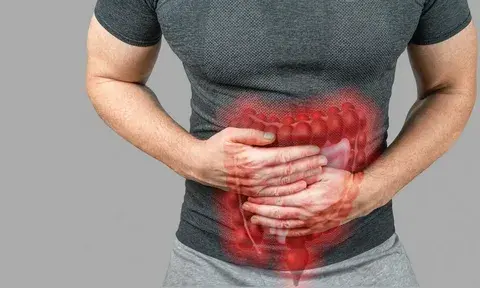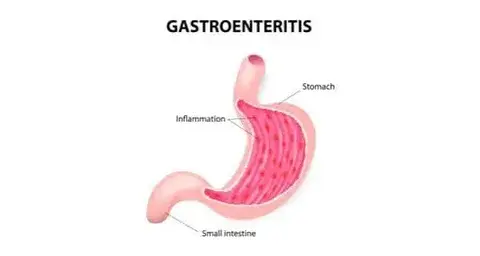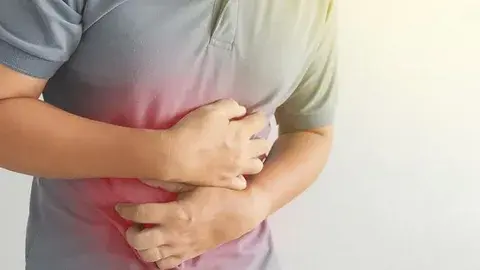Hey, friend. Have you been feeling off lately? (Wellhealthorganic) Stomach cramps, running to the bathroom too often, or even throwing up? These are all common symptoms that could be pointing to gastroenteritis—one of those unpleasant but common stomach and intestine conditions. If you’re unsure about the warning signs, don’t worry, I’ve got you covered. Let’s break it down together so you can spot the signs early and know what to do next.

What Is Gastroenteritis? | wellhealthorganic.com: Key Signs of Gastroenteritis
Alright, first things first, what exactly is gastroenteritis? In simple terms, it’s when your stomach and intestines get inflamed. You’ve probably heard it called the stomach flu, though it’s not always related to the flu. And guess what? This inflammation leads to a bunch of uncomfortable symptoms like diarrhea, vomiting, and abdominal pain. Nasty stuff, right?
Now, why does this happen? Well, gastroenteritis is usually caused by an infection. There are several culprits, like viruses (such as Norovirus and Rotavirus), bacteria (E. coli or Salmonella), and even parasites like Giardia. So yeah, lots of sneaky little invaders can trigger this.
How Gastroenteritis Impacts Your Body
Here’s what happens when you get hit with gastroenteritis: your digestive system goes haywire. Instead of working smoothly, the inflammation makes your body secrete extra fluids into your intestines, which means you’ll likely experience diarrhea and possibly vomiting. These symptoms are your body’s way of getting rid of whatever’s irritating your system.
But there’s a catch—when you lose all that fluid, it’s easy to become dehydrated. Your body struggles to absorb water and nutrients, which is why staying hydrated is super important if you’re dealing with gastroenteritis.
The Most Common Symptoms of Gastroenteritis
So, how can you tell if it’s gastroenteritis and not just a regular upset stomach? Let’s go over some of the key symptoms you should watch out for, based on wellhealthorganic.com: key signs of gastroenteritis:
- Diarrhea: We’re talking about frequent, watery stools. It’s not fun, and worse, it can lead to dehydration if you don’t stay on top of fluids.
- Vomiting: Another unpleasant but common symptom. Vomiting, often paired with diarrhea, can dehydrate you quickly.
- Abdominal Pain: Whether it’s a dull ache or sharp cramps, stomach pain is a hallmark of gastroenteritis.
- Nausea: Before you start vomiting, nausea is usually your body’s way of warning you that something’s wrong.
- Fever: A mild fever—between 100.4°F (38°C) to 101°F (38.3°C)—is your body’s way of fighting off the infection causing gastroenteritis.
Recognizing Serious Symptoms of Gastroenteritis | wellhealthorganic.com: Key Signs of Gastroenteritis
Most cases of gastroenteritis clear up on their own, but sometimes things get more serious. It’s crucial to know when to seek professional help. If any of these danger signs pop up, it’s time to call the doctor:
- Severe Dehydration: Signs include a dry mouth, dark urine, sunken eyes, and a racing heart. Dehydration can be really dangerous, especially in kids or older people, so if you notice these symptoms, don’t wait.
- Blood in Stool: If you see blood, that’s a red flag. Blood in your stool isn’t normal and could signal a more serious infection or condition.
- High Fever: If your fever spikes above 101°F (38.3°C), it’s no longer just a mild infection. You might need medical intervention.
- Severe Abdominal Pain: If the pain becomes unbearable or is concentrated in one area, it could be a sign of complications like appendicitis or a bowel blockage.
When to See a Doctor for Gastroenteritis
So, when should you make that doctor’s appointment? Here are a few scenarios where you should definitely consider it:
- Your symptoms don’t go away after a few days.
- You show signs of severe dehydration.
- You notice bloody diarrhea or a high fever.
- You’re part of a vulnerable group, like being elderly, an infant, or someone with a chronic illness, and the symptoms are hitting you hard.
Basically, if you feel like it’s more than just a passing stomach bug, don’t hesitate to seek medical advice.

Managing Gastroenteritis at Home | wellhealthorganic.com: Key Signs of Gastroenteritis
Alright, let’s talk about what you can do if you’re dealing with gastroenteritis. The good news? Most people recover just fine with a little TLC. Here’s what I recommend:
- Stay Hydrated
This is priority number one. Gastroenteritis can cause a lot of fluid loss, and dehydration can sneak up on you. Try to drink plenty of water, electrolyte solutions, or clear broths. Avoid sugary drinks and caffeine, as they can make things worse.
- Rest, Rest, Rest
Your body needs time to fight off the infection, so take it easy. Avoid strenuous activities and get plenty of sleep.
- Eat Light
When you’re ready to eat, stick to bland foods. Think toast, rice, bananas, and applesauce. Spicy or greasy foods? Not your friend right now.
- Know When to Call the Doctor
If you’ve followed all the tips above but you’re not getting better, it’s time to see a healthcare professional. They can give you a more precise diagnosis and might prescribe medication to help manage the symptoms.
FAQ | wellhealthorganic.com: Key Signs of Gastroenteritis
1. How long does gastroenteritis last?
It usually lasts anywhere from a couple of days to a week, depending on the cause and severity.
2. Is gastroenteritis contagious?
Yes, especially if it’s caused by a virus like norovirus or rotavirus. Practicing good hygiene, like washing your hands regularly, can help prevent spreading it.
3. Can gastroenteritis be treated with antibiotics?
Only sometimes. Antibiotics work for bacterial infections, but viruses often cause gastroenteritis so that antibiotics won’t help in those cases.
4. Can I prevent gastroenteritis?
While you can’t always avoid it, you can reduce your risk by washing your hands frequently, avoiding contaminated food and water, and practicing good hygiene.
5. When should I be worried about my child’s gastroenteritis?
If your child shows signs of dehydration, has a high fever, or their symptoms last more than a few days, it’s best to consult a doctor.
Conclusion | wellhealthorganic.com: Key Signs of Gastroenteritis
Spotting the key signs of gastroenteritis early on can make all the difference in how quickly you recover. Whether it’s nausea, vomiting, diarrhea, or abdominal pain, paying attention to these symptoms and taking action—like staying hydrated, resting, and eating light—will help you bounce back faster. If things get serious, don’t hesitate to seek medical attention.






Leave a Reply